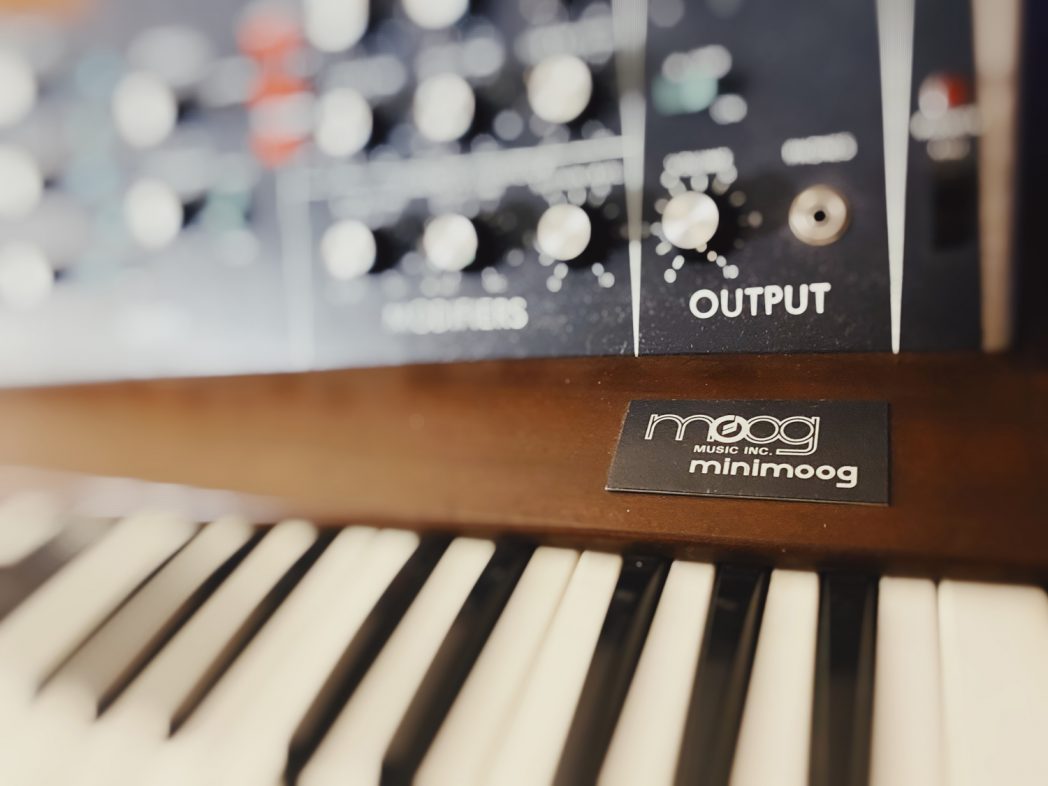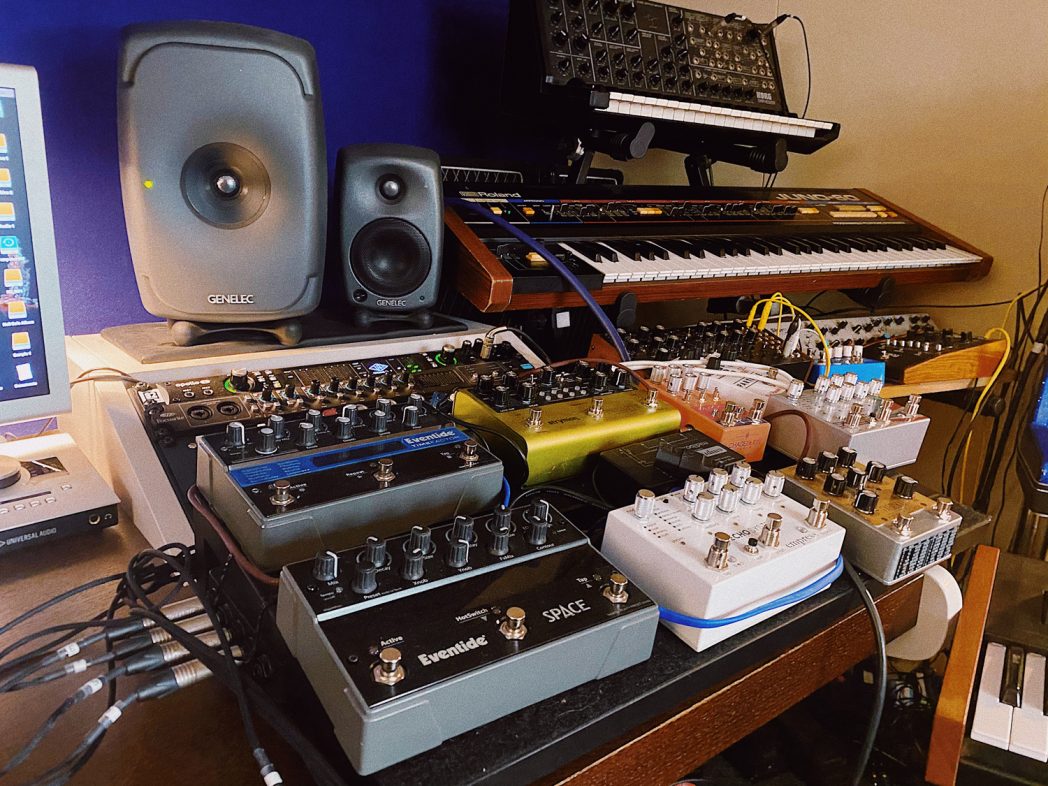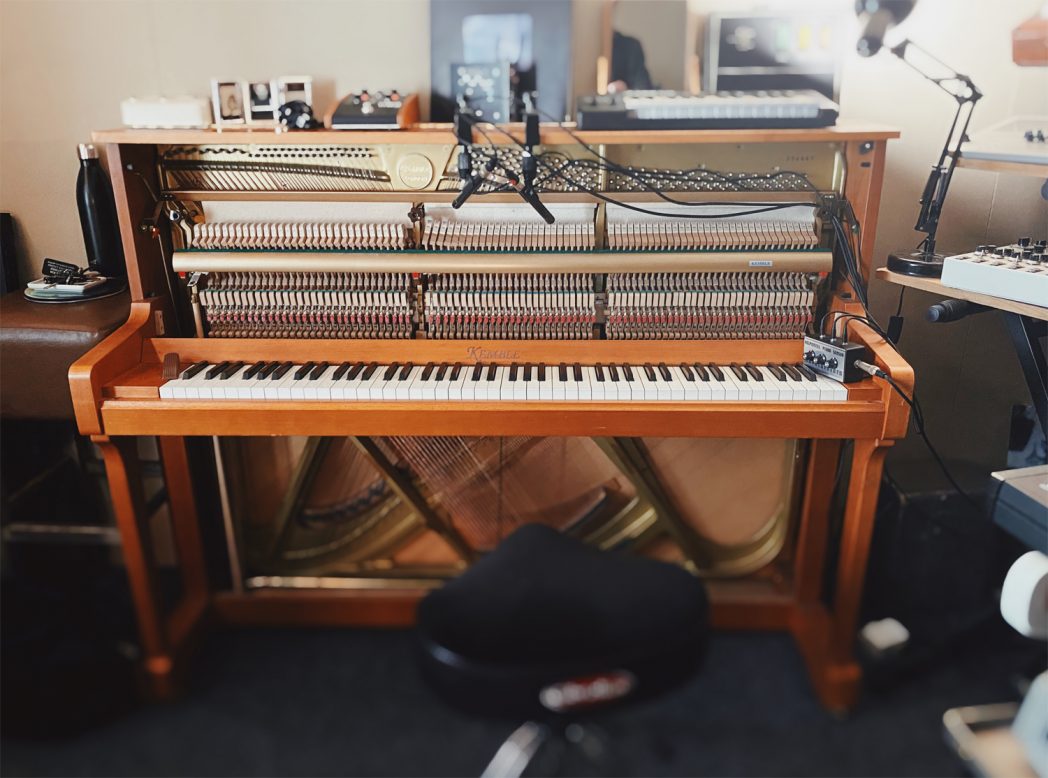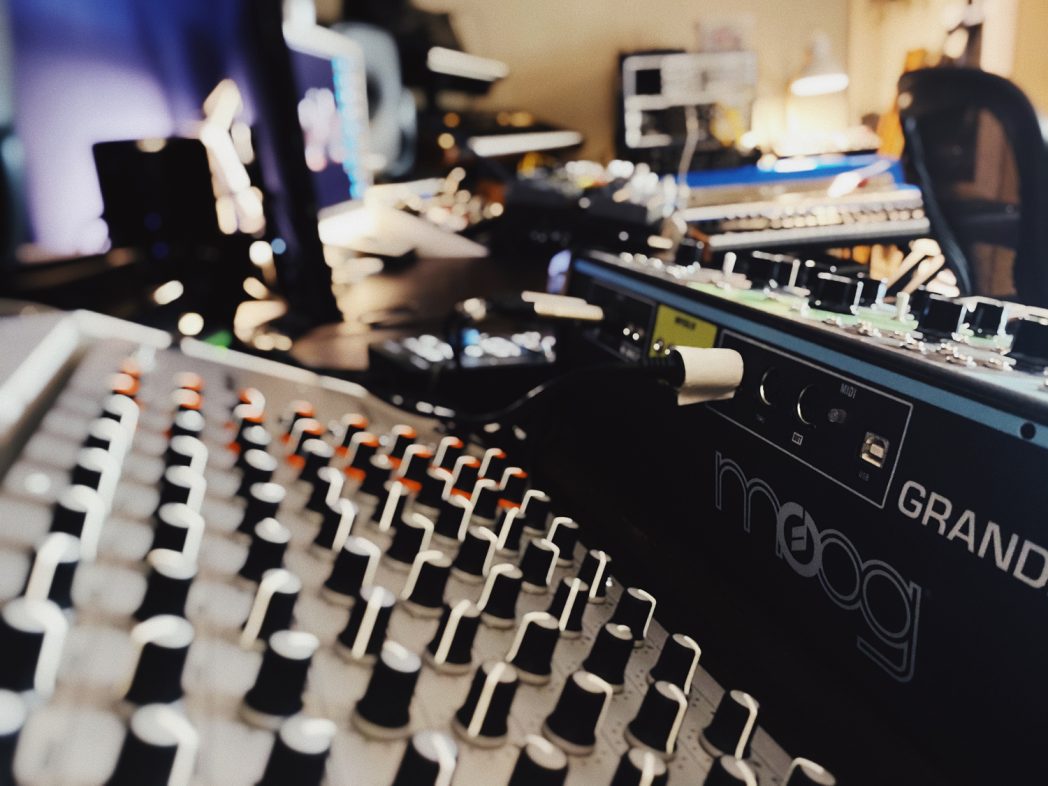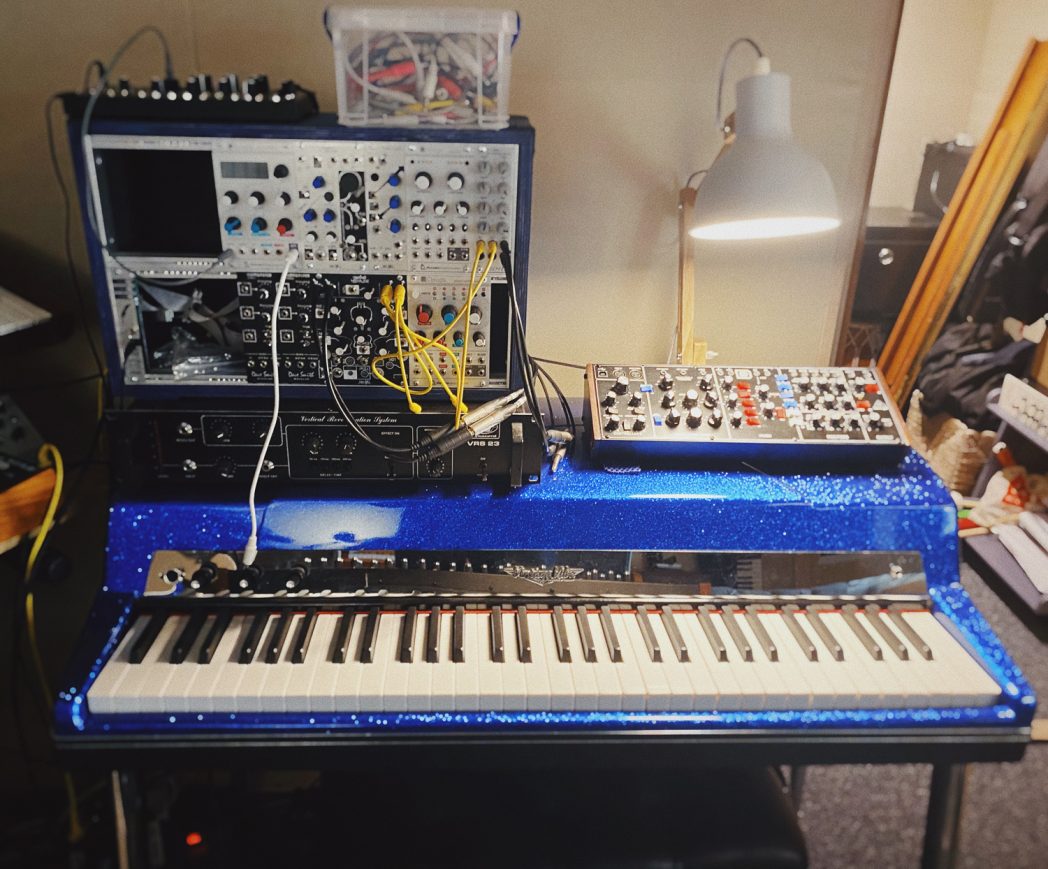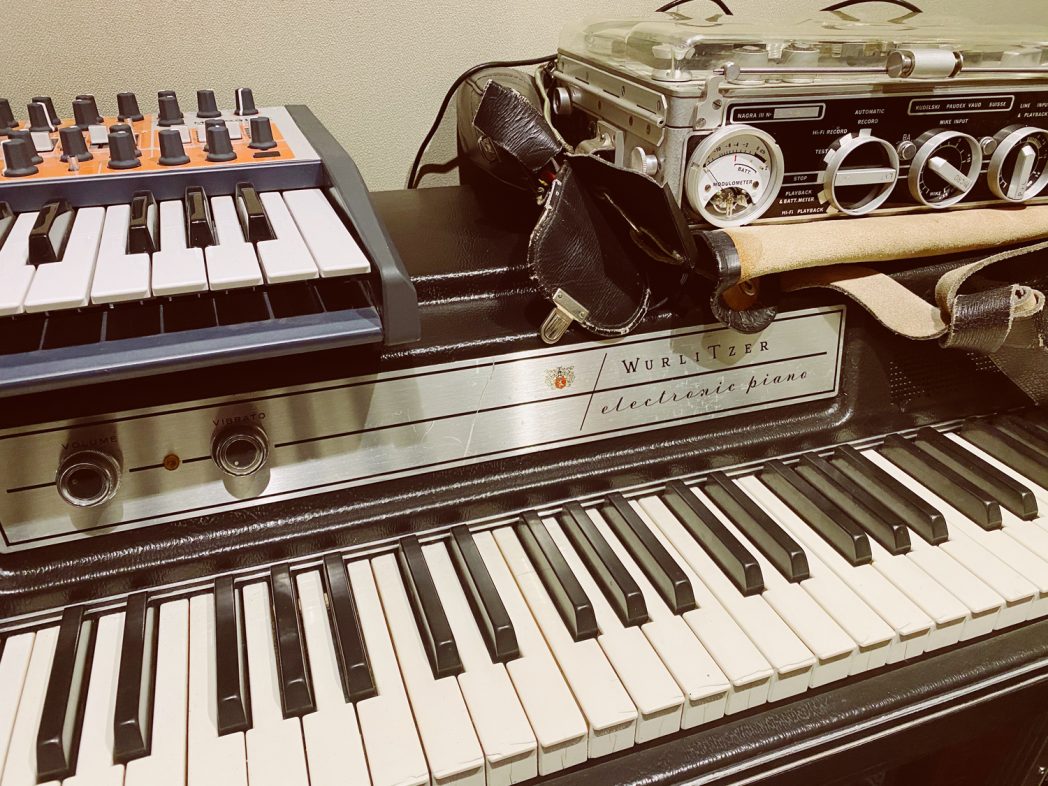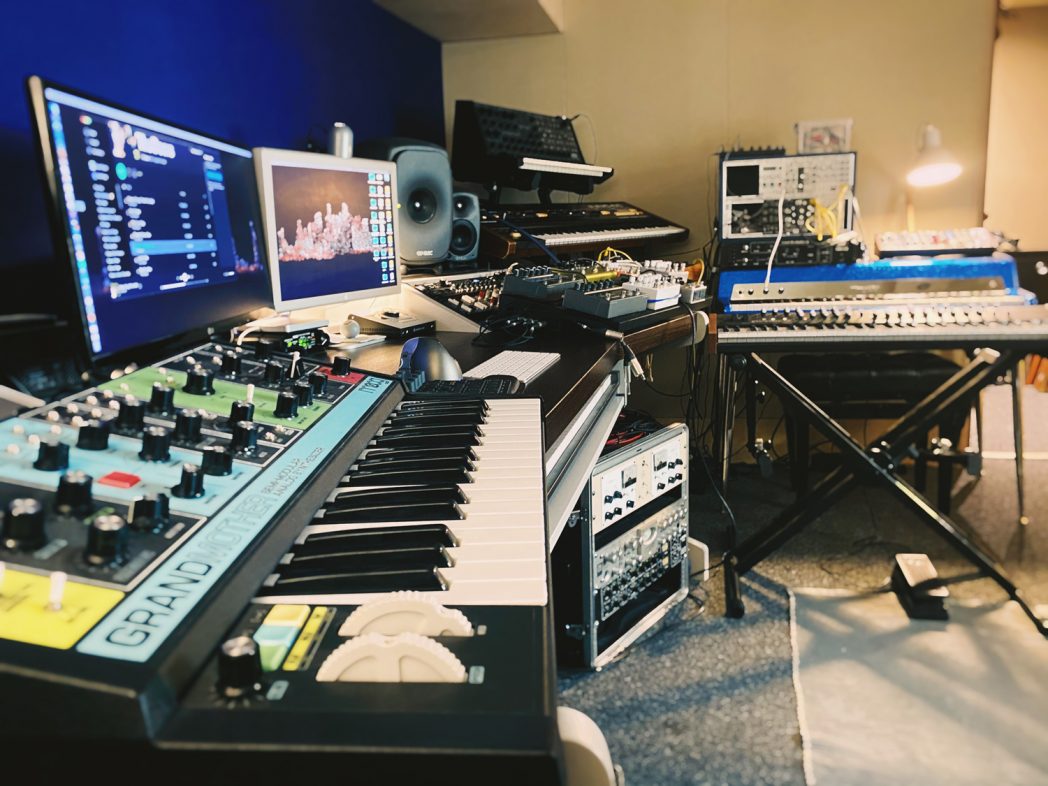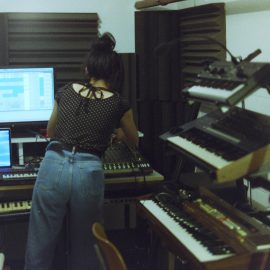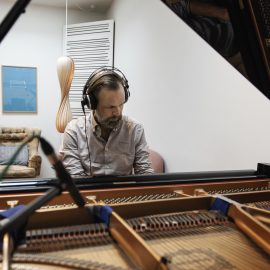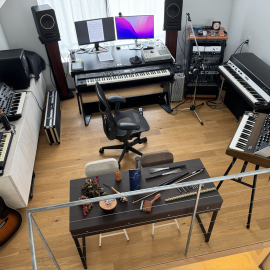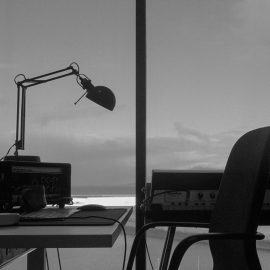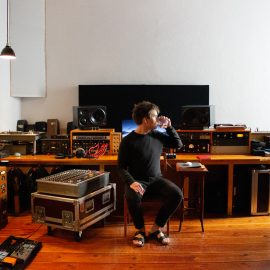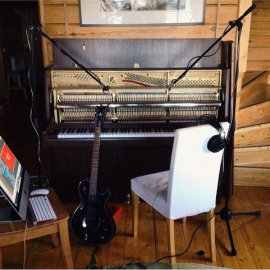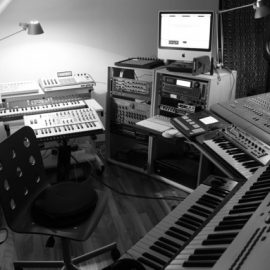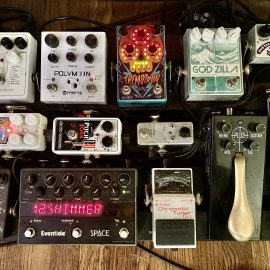Let’s start at the very beginning. Can you tell us how you got involved in composing, and what was your very first piece of gear?
The very first piece of gear I ever got my hands on for composing was a 4 track cassette recorder. Someone lent it to me when I was about 17. Occasionally I stumble on those first recordings. When I hear early recordings like that I’m always astonished by how some qualities in the music are radically changed and in equal measure how utterly the same they are. Strictly speaking, though my first piece of gear was a Yamaha DX7 synth which I purchased when I was about 15. I took on three paper rounds every day to purchase it. I remember going to a guy’s house in North London who was selling it. He was a professional musician and had the DX7 and a Roland D50. Both state of the art at the time! Similar to spending days programming code into my ZX Spectrum (we are going way back here!) I spent days programming my Yamaha DX7. The code was copied from sound patch books and I knew very little about what I was actually doing. Now I would like to imagine I’d have a much better understanding of it. I still have the DX7. But it’s been out of action for a LONG time. Must get round to fixing it.
How many different studio iterations have you gone through, and what does your final setup look like right now?
Crikey. I’ve never thought about how many different studio iterations I’ve been through. It’s endless. There are two layers to that. The first layer is location: going from my living room in a bachelor pad in Putney, to a deserted house, to my friend’s spare room, through two pretty substantial home setups and finally to a purpose-built room at Metropolis Studios in Chiswick, which is what I have now. The second layer is how many times I’ve adjusted the layout of my gear, and since I do that almost every time I write a new tune (or at least every time I start a new project) that would run into the thousands. The process of shifting things about is my own particular gateway to feeling comfortable about beginning a new piece of music. Right down to hoovering the carpet. A friend once told me that his order of things was to wake up in the morning and immediately write music so that his brain then felt able to move onto the more admin side of life later in the day. I’m the opposite of that, for better or worse.
Tell us about your favourite piece of hardware.
Well, it has to be my Moog Minimoog. No surprise there really. It’s a 1973 model and it appears to be sonically signalling its own death throes every time I turn it on. There is an implausible difference to its sound each time I go to it. That’s not to say it doesn’t have any reliability. It’s reliably implausible!
And what about the software that you use for production?
I have some hardware tape options in the studio, but if I’m in a rush I like the little Klevgrand cassette simulator. I’ve tried a few randomiser programs for manipulating sound, but in truth, there’s enough hardware lying around that can do it better, so I grow bored quite quickly with the software options. Soundtoys, Eventide and Valhalla are used a lot, as are the UAD plug-ins, but mainly for reverbs and delays. My guitar pedal setup provides the magic, less conventional stuff. Love a guitar pedal!!
Is there a particular piece of gear that you’re just dying to get your hands on and do you think one day you’ll have it?
Since I’m a piano player first and foremost, it seems rather perverse that I have so much recording equipment and so many synths around me and yet no grand piano. I have a beautiful upright which is featured on most of my stuff, but the grand piano epitomises something of my supposed destiny. What I really should do, and have often threatened to do in order to be the complete purist, is sell it all and just have me, a grand piano and a room with a window to a nice view. Maybe I’ll finally do that after I finish writing this article.
Can you please share some aspects of sound design in your work?
‘Sound Design’ is one of those phrases for which I’ve never really settled on its meaning. I’ve processed childhood recordings of mine and used them in a piece. I turned a creaky but musical sounding gate into a kind of pad on a tune once with some heavy processing. I sampled a sneaky recording of a coach driver (and self-appointed tourist guide) called James in Vancouver, Canada a couple of years back. I suppose I would also cite my meanderings with the Make Noise Morphagene as a sound design of sorts. It has a wonderful crunch to it and the results are always instantly pleasing. I feel a little guilt when something happens within the clutches of a machine that sounds SO good. But it’s unavoidable… and if there is a tiny moment where I question whether what’s happening is composition or happenstance it disappears very quickly when I am inspired to play the piano (for instance) alongside the sound as if it is another band member. This is important when you’re making a solo record.
Any particular new techniques that you tried out for your new album?
The purchase of the Helpinstill Pick Up from Houston Texas played a big part on the new album. If you’re not aware of it, it’s a magnetic pick up that sits on the soundboard of a piano and gives you the ability to amplify the piano without the risk of feedback. The immediate appeal of it was that it enabled me to ‘plug’ my piano into my pedal board and wash the sound with reverb, delays, sampling, morphing, distorting… the list goes on. As a by-product of this – and to cut a very long story short – it ultimately meant that I could manipulate old analog TV’s with the piano so that the ‘snow’ that you see on an untuned old style TV could be ‘played’. Low notes producing big thick bands of static and high notes producing thin ones. You can see me doing this on my ‘Hall of Mirrors’ video on Youtube and we have transferred this to the live show.
What does your live setup look like, and what do you bring with you when you travel for an extensive tour?
As referred to in the last question… there are a lot of TVs! They are very much part of the performance now and act as ‘other band members’ to inspire me. I am based mainly at the piano. Grand or upright depending on the constraints of the stage etc. Then I have a Prophet 8 synth that sits on top and my guitar pedal board over to the right. To my left, I have Ableton which I have begun to enjoy much more in recent times as a tool for sound manipulation and improvised arranging. I endeavour to bring as much of that with me as possible when I tour, bar the piano. The piano is always the scary untested element that can surprise me on the day!!
What is the most important environmental aspect of your current workspace and what would be a particular element that you would improve on?
I think space to move and think is important and that is something I permanently struggle to maintain. Scuppered most commonly by my addiction to more and more equipment! Barriers and so impactful. I love the studio of Greg Freeman, my producer and mix engineer friend who helped me create the ‘Hall of Mirrors’. He is entirely dedicated to sound and therefore he has very little other than two speakers and a very economical pod of equipment in his fairly large room. As a result, the sound becomes the most important element…. Which seems to make the most sense in the field of music! I’m lucky enough to have some natural light in my room which I do think is important. A little can go a long way. But I suppose if I was to make an improvement it would be in getting very disciplined in what I used and consigning the rest to a lock-up somewhere. Thereby creating room for the sound. A composer’s dilemma!
What can you tell us about your overall process of composition? How are the ideas born, where do they mature, and when do they finally see the light?
Piano first, generally. Though maybe a small rhythm element may be put in place to spark the harmonic gateway that the piano provides. Then starts the long process of embellishing it, or orchestrating it. I say orchestrating, as I like to think of the synth elements that I add as orchestrations. They certainly emulate those textures that linger in my brain somewhere from the early classical beginnings that I had as a child. What I’m trying to do at the moment is bypass the abyss that I can fall down by overplaying the stuff as I write it. That can lead to a place where it takes months to hear it with the necessary fresh ears. The process that I’ve enjoyed in recent times is to get them to a point where I take them over to Greg Freeman in Berlin and we get them over the line together. It’s amazing what handing over some of that responsibility can do to elevate the music, and most certainly the production. The final compositions see the light when they make sense to me as a larger body of work.
After the piece is complete, how do you audition the results? What are your reactions to hearing your music in a different context, setting, or a sound system?
Well, the car is traditionally the best place. I have a theory that the annoying, analytic, logical side of the brain that gets in the way of the listening process is nicely preoccupied when you’re driving and you can just get on with the job of listening. It also tends to be the one constant listening location that gives you that ‘reliable’ listen. In other words, you tend to know how it ‘should’ sound in that environment. My reactions to hearing my music in a new environment can have a huge impact. Put crudely, if I hear and it sounds shit, then there’s probably trouble ahead! There are few times post a record coming out that you hear it in such a beautiful and concentrated space, simply by nature of the fact that you are mixing and mastering on beautiful equipment in beautiful rooms. It’s rare to return that music to sound equipment of that quality again. So the next time I hear it is most likely to be on a phone (like it or loathe it) and then I feel you get the experience of the fresh listener at its truest. I remember the day my album came out, listening to it on my phone from a streaming service and really hearing it in a new light. It was one of the most emotional listens and had something to do with it being available to all. There’s some deep psychology in there somewhere.
Do you ever procrastinate? If so, what do you usually find yourself doing during those times?
Yes. I’m good at that!! I can faff with the best of ‘em. It’s mainly because I’m fearful of how much control a project or a piece is going to have over me. I can’t do things by half measure so I have to be really sure I’m ready to commit. Then once I do, everything else goes to pot. That can mean trouble! So to procrastinate I email, draw long lists, clean things, dust things, watch nonsense online. Faff-min my friend calls it. I also love deep and increasingly obscure film, but I tend to watch that kind of thing once I’m in the zone. Not when I’m faffing.
What gets you inspired?
Deep and increasingly obscure film! I go through film phases and the stories and the way they are represented tend to inspire me more than most other things. So in recent times, I had a Fellini phase, a Wim Wenders phase, a Peter Greenaway phase, then a modern Black and White movie phase, then a general Italian movie phase, then a generally Japanese phase, then cult African cinema and on it goes.
And finally, what are your thoughts on the state of “electronic music” today?
Like all genres of music, the most prevalent and successful genres at any time reflect the environments in which music is most commonly being listened to at the time. Electronic music ticks a lot of boxes at the moment. Economically, we are able to (or perhaps confined to??) making music in solitary style boxes or smaller environments. We are being presented with a huge abundance of tools in order to make that kind of music and we are listening to music on our phones… a listening tool where electronic music just seems to sound right. Of course, that’s not what you’re asking me really. But I think any comments on ‘the state’ of electronic music are liable to age very quickly. If I say ‘it’s not in a great state’ that would tend to suggest I long for a bygone age, and it has always been my endeavour to move and change and let the music and its ever-changing mode of communication mould what I do. Likewise, if I say ‘it’s in a great state’ then that suggests it wasn’t great before and some percentage of music has always been great. I like the way electronic things sound quite a lot. But then I also like the way non-electronic things sound too. It’s all music!
